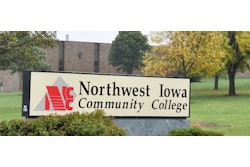Signaling a nationwide higher education trend, two New Jersey community colleges are exploring a potential merger to mitigate years of declining student enrollment and revenue and increase academic and economic opportunities for the region’s residents.
The potential merger between Cumberland County College (CCC) and Rowan College at Gloucester County (RCGC) is the latest case of the combined effects of disinvestment in higher education since the recession of 2008, and a move to increase efficiency of institutional operations, some scholars say.
“Public higher education faces a tough time in many states,” said Dr. Stephen G. Katsinas, director of the Educational Policy Center and professor of Higher Education Administration at the University of Alabama (UA). “State appropriations recovery following the Great Recession has been very slow. Without question, the disinvestment by many states is motivating mergers.”
While there is no central list of mergers of colleges and universities year by year, the federal government does keep track of “parent-child” institutional relationships and things such as name changes, Katsinas said.
 Dr. Stephen Katsinas
Dr. Stephen KatsinasA 2016 report from UA’s Education Policy Center showed that community colleges also have faced a “double-whammy” in that their dependence on tuition revenue means that cuts to federal student aid and Pell grants result in declining student enrollment, a loss of tuition revenue and lower graduation rates.
In the case of the potential merger between CCC and RCGC, Cumberland County Freeholder director Joseph Derella urged stakeholders in an open letter to consider the merger due to a 26-percent decline in enrollment at CCC since fiscal year 2013-2014 and declining revenue.
A potential merger also would open the possibility for the creation of a “corridor of education and medicine along Route 55” to serve both students and residents, Derella and Gloucester County Freeholder Director Robert M. Damminger said in a joint statement in March.
Enrollment statistics from the New Jersey Department of Education showed that enrollment at CCC decreased from 5,476 students in 2012 to 4,063 students in 2017. Declining student enrollment affects tuition revenue, which accounts for nearly half of CCC’s $25-million budget, according to local news reports.
In April, CCC’s board of trustees voted 5-2 to explore joining RCGC. RCGC – originally named Gloucester County College – entered into a partnership with Rowan University, a research institution with two medical schools, in 2014.
“We would do ourselves a disservice if we do not at least look into [the merger],” CCC’s board chair Donna M. Perez said at the time of the board’s vote.
But even with support for the potential merger’s approval from freeholder directors Derella and Damminger, some CCC faculty and the New Jersey Education Association (NJEA) caution that more questions should be asked about the merger to understand its implications. Last month in an effort to reorganize, CCC laid off 43 full-time and part-time staff members on June 30 by not renewing their contracts.
“There is a lot of discussion within our association about a possible merger, and I think the prevailing opinion is it’s a good idea to explore the opportunities a merger could create, provided the exploration happens in a way that puts our students’ and community’s interests in the forefront of the discussion,” said John Lore, president of the Faculty Association of Cumberland County College, an NJEA local affiliate. “The most important thing to us is our college’s mission, and the first thing we have to ask is whether a potential merger and its terms would allow us to accomplish the goals that support our mission in the community and best fulfill our obligations to our students.”
Ismail Asadov, executive director of Workforce Development and Communications and Marketing at CCC, told Diverse he did not have additional information on the potential merger.
It is unclear what the timeline would be for the merger process should the merger be approved, or what the merger would look like in terms of CCC’s brand, academic programs and financial aid for students.
“While it is too early to speculate the outcome, we do support the concept of seeking new ways of delivering the best services to our residents, weighing all options, pros and
 Donna M. Perez
Donna M. Perezcons, and we look further to a continued conversation on this idea, which will be done in the most transparent of manners,” Damminger and Derella said in their joint statement.
If CCC and RCGC want to initiate the merger process, officials must receive a notification and approval from both the Secretary of Higher Education and the Middle States Commission on Higher Education to move forward, Derella said.
Dr. Arthur Dunning, a senior fellow at UA’s Education Policy Center, successfully headed a merger with Darton State College during his tenure as president of Albany State University.
At the time, he said, leaders had to consider how to increase efficiency of academic programs to “meet 21st-century workforce needs” as well as the institution’s fiscal challenges.
Regarding a demand for more financial assistance from the state, Dunning added that college presidents are tasked with being innovative and creative with the funds they receive while having to seek outside funding for the college’s programmatic offerings.
David Baime, senior vice president of government relations and policy analysis at the American Association of Community Colleges, said state disinvestment in community colleges is a concern for his organization.
“We have tried to get the federal government to look at ways to induce the states to maintain or even increase their investments in our institutions,” Baime said.
Katsinas added that if state appropriations rise, but at only half the rate of inflation, “the only options for boards and presidents is to either (a) raise tuition and fees, (b) cut programs and services or (c) a combination of both.”
“Presidents are smart people,” Katsinas said, “but they don’t print money.”
Tiffany Pennamon can be reached at tpennamon@diverseeducation.com. You can follow her on Twitter @tiffanypennamon.















